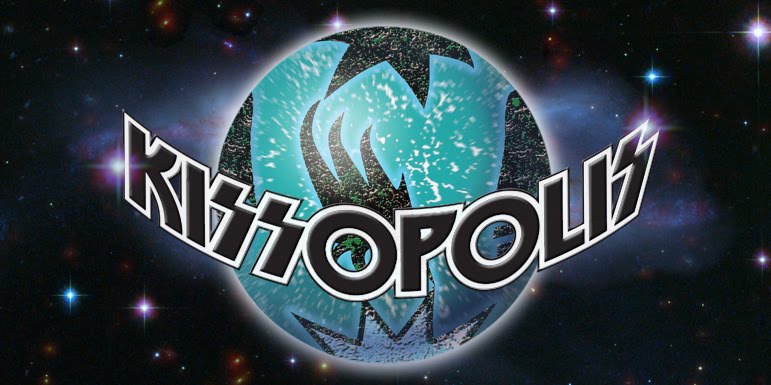Sunday, October 11, 2009 - 3:24 AM
Album Review: KISS - Sonic Boom
Let’s face it, nostalgia trips aside, KISS hasn’t been cool for a long, long time. As with most things that used to be cool, as time went on, the cooler they tried to be, the more uncool they became. Sure they sold records in the ’80s and ’90s, but their constant genre hopping (hair metal, grunge, Gene Simmons even dabbled in hip hop and techno on his last solo album) always came off as more of a ploy to make money than an act of musical authenticity. Hell, they’ve pretty much admitted that.
But 11 years after their last studio effort, and 18 years after their last halfway decent studio effort (1992’s Revenge for those keeping score at home), the horniest guys ever to don Kabuki make-up are cool once more, and like all things to re-obtain their coolness, they do it with no gimmicks whatsoever. Sonic Boom is no frills, classic hard rock featuring big hooks, big guitars, and even bigger deliciously bad machismo and sex puns. “The hottest band in the land” from the ’70s is back with their finest batch of barbed tunes since 1977’s Love Gun (not counting Ace Frehley’s subsequent solo album of course, which was KISS in name only).
Before we jump into this thing, let’s get a few things straight. KISS songs are not complex or sophisticated, nor do they pretend to be. They are about sex, bravado, partying, and not much else. This is a Kiss record. It’s not high art, and that’s okay. Still with us? Great, let’s begin.
Opener and hit single, “Modern Day Delilah” starts things off properly with another Paul Stanley penned tale of a dominating woman, in this case, an evil lover who Stanley plans on exacting revenge upon. She’s a mistress and he’s a servant. Or something like that. Either way, it doesn’t matter when you hear Tommy Thayer’s weed whacker axe shred its way through a riff that’s as catchy as the hook. Sure, he’s pretty much imitating the dearly estranged Ace Frehley, but it’s the next best thing. The chorus is all call and response between Stanley and the rest of the band, a common motif throughout the album. It’s great to hear the chanted repetition of KISS’ ’70s hooks come back into play, especially on “All For The Glory”. It’s the obligatory song where lead vocals are handed to the drummer (nearly every KISS album has one), and Eric Singer is a fine replacement for Peter Criss, his Rod-Stewart-if-he-were-edgy rasp responding appropriately to the band thudding out “we’re all for one and we’re all for the glory.” It’s as dumbly macho of a lyric as you’ll find, but they sound so sincere when they’re saying it, and more importantly, they sound like they’re having fun.
And that’s the key ingredient to the album’s success. These are ham fisted anthems through and through with classic one liners sprinkled across the board. The best one comes with “Danger Us”. ”Danger me, danger you, danger us!” Paul Stanley howls. And let’s not forget sex puns galore, found on virtually every one of Simmons’ songs. Although his presence is not as intimidating as his ’70s work, his brand of pop metal still knows how to stomp and plod, finding a happy medium between the band’s ’80s and ’70s material with songs like “Russian Roulette” and “I’m An Animal”.
But the album’s finest moment comes with its closer, “Say Yeah!”. It’s as simple a tune as they come (even by KISS standards), but when you hear the band repeat “say yeah, yeah, yeah, yeah” over three perfect crunch chords, you can’t help but pump your fists in the air, whether it be in your room or in public.
My one complaint is that things could have been a little thrashier. The frenetic momentum of albums like Love Gun is sorely missed, but then again, the youngest guy in the band is 49, and this is a classic KISS album with not one shred of filler. By refusing to be hip and letting their corny sincerity settle into their bones, Kiss has reclaimed their title as the hottest band in the land. Next time we hear “you wanted the best and you got it!”, we can all rest assured that this time, they actually mean it.
Rating: ****½

